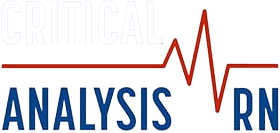Forensic nursing plays a pivotal role not only within local jurisdictions but also in the complex dynamics of forensic nursing international crime and cross-border crimes. As globalization increases, so does the frequency of crimes that transcend national boundaries, including human trafficking, cybercrime, and international drug trafficking. Forensic nurses are increasingly finding themselves at the forefront of these cases, where their expertise is crucial in navigating the complexities of different legal systems and international protocols.
The Role of Forensic Nurses in International Crimes
Forensic nurses provide specialized care to victims of crime, with responsibilities that often extend into the realms of legal testimony and evidence collection. In cases of international crime, these nurses face the unique challenge of operating within multiple legal frameworks and cultural contexts. Their work often involves collaborating with international law enforcement agencies, legal teams, and healthcare providers to ensure that evidence collected is admissible in different judicial systems.
Challenges of Jurisdictional Differences
One of the primary challenges faced by forensic nurses working on international cases is the variance in legal standards and practices across different countries. What constitutes acceptable evidence in one country may not hold in another, and procedures for collecting and preserving evidence may differ significantly. Forensic nurses must be adept at understanding these differences and capable of adjusting their methods accordingly. This often requires a comprehensive understanding of international law as it pertains to criminal justice and forensic science.
Training and Education
Given the complexities of international forensic cases, specialized training and education are critical for forensic nurses. This training often includes courses in international criminal law, comparative legal systems, and specific protocols for handling evidence that may need to cross borders. Additionally, cultural competence training is essential, as forensic nurses must be sensitive to the cultural backgrounds and experiences of victims from different countries.
Collaboration Across Borders
Collaboration is key in the management of cross-border crimes. Forensic nurses often work as part of multidisciplinary teams that might include international law enforcement officers, legal professionals, and diplomats. These teams work together to navigate the logistical and legal challenges of international cases. Effective communication and coordination are crucial in these settings to ensure that all members of the team are aligned in their approaches and objectives.
Use of Technology
Technology plays a significant role in supporting forensic nurses in international settings. Digital tools and platforms allow for the secure and efficient exchange of information across borders. Forensic nurses may use specialized software to document evidence and maintain chain of custody in a manner that is recognized by multiple jurisdictions. Additionally, teleforensic nursing, where nurses provide consultation and testify in legal proceedings via videoconferencing, is becoming increasingly common, facilitating international cooperation without the need for extensive travel.
Handling Human Trafficking Cases
Human trafficking is a significant area where forensic nurses contribute to international crime solving. Victims of trafficking often cross multiple borders, and the coordination of medical and legal assistance across these borders is complex. Forensic nurses play a critical role in assessing and treating these victims while ensuring that the evidence of trafficking is meticulously documented for use in multiple legal systems. They also provide critical testimony that can link disparate cases across different jurisdictions.
Ethical Considerations
Working on international cases presents unique ethical challenges. Issues of victim consent, privacy, and the sharing of sensitive information across borders require careful ethical consideration. Forensic nurses must adhere to international ethical standards while balancing the legal and cultural expectations of the countries involved. They must ensure that their primary duty to care for and advocate for victims is not compromised in the pursuit of criminal justice.
The Bottom Line
Forensic nursing’s role in international crimes is both challenging and vital. As the world becomes increasingly interconnected, the importance of forensic nursing in the context of international law continues to grow. Forensic nurses not only provide essential services to victims but also ensure that the evidence collected can withstand the scrutiny of diverse legal systems. Their work is fundamental to the successful prosecution and resolution of cross-border crimes, highlighting the indispensable nature of forensic nursing in the global fight against crime. As international crime continues to evolve, so too will the strategies and tools at the disposal of forensic nurses, ensuring that they remain effective partners in international law enforcement.
Would you like to discuss your case? Just give me a call at (432) 661-3639 or email me today!
